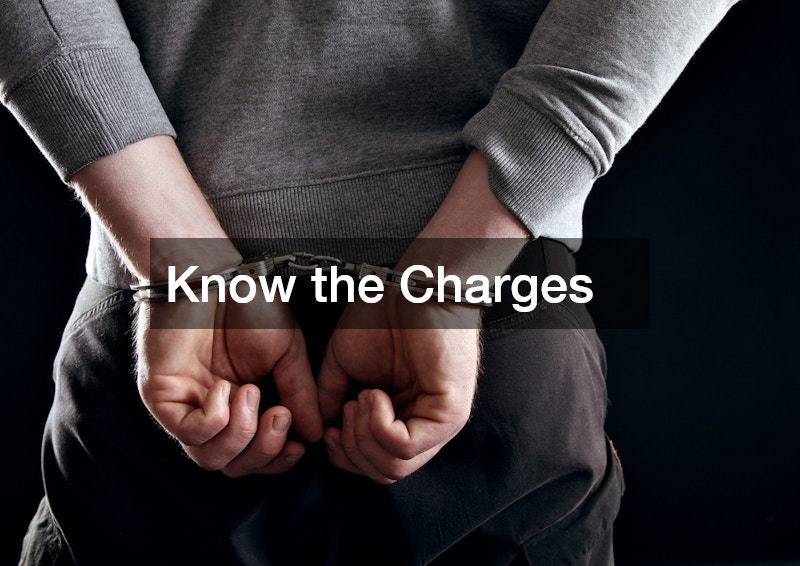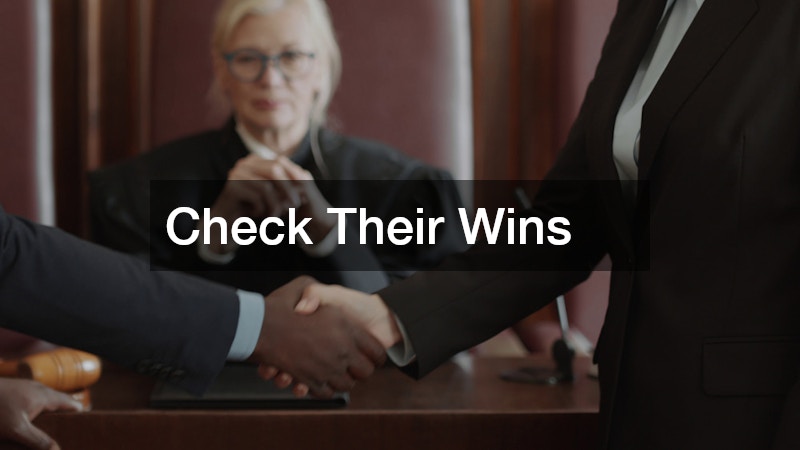Facing serious legal trouble at the federal level is an overwhelming experience that demands careful and informed decision-making. When someone is confronted with accusations that carry heavy consequences, finding the right legal support becomes critical. The process of choosing the appropriate legal professional isn’t just about hiring anyone with a law degree; it involves thorough research, thoughtful evaluation, and a deep understanding of how these cases work. The stakes are incredibly high, and the nuances of federal cases require someone who truly understands the complexities involved.
Before placing trust in any legal representative, it’s essential to gain clarity about the nature of the charges and the potential repercussions they carry. This initial understanding also informs the process of vetting, where individuals assess credentials, past successes, and overall suitability for their unique situation.
Once you begin exploring your options, it’s crucial to know what questions to ask and what indicators might reveal a capable or less-than-ideal choice. Delving into their background and track record can shed light on how effectively they can represent your interests. While this vetting process may seem daunting during such a stressful time, it is the best way to ensure you have a strong advocate on your side who can handle the challenges ahead.
1. Know the Charges

When someone is facing federal accusations, the very first step is to fully understand the nature of those charges. Federal crimes are often more complex and carry more severe consequences than state-level crimes, which makes it essential to grasp what is being alleged. Having a clear comprehension of the charges can help guide the entire defense process and shape the expectations moving forward. Without this fundamental knowledge, it’s nearly impossible to make informed decisions or work effectively with any legal professional.
More specifically, these cases may involve a variety of legal issues such as drug trafficking, fraud, or white-collar crimes. A seasoned defender who specializes in these matters understands the particularities that come with different charges and how to respond appropriately. Knowing the charges in detail allows the federal charges lawyer to craft tailored defense strategies that directly address the accusations and protect the rights of the accused.
Elaborating further, understanding the exact nature of the charges helps the accused and their legal counsel anticipate possible penalties, understand the likelihood of trial versus plea bargains, and explore alternatives such as sentence reductions or dismissal options. It’s this foundational knowledge that enables the accused to engage meaningfully with their legal representative and take the right steps throughout the legal process.
2. Assess the Stakes
Every serious federal case comes with significant risks that can impact one’s freedom, reputation, and future opportunities. Assessing the stakes involved means understanding not only the immediate consequences such as jail time or fines but also the long-term effects a conviction may bring. This evaluation is crucial because it shapes the urgency and level of defense needed, ensuring the accused secures the best possible representation to safeguard their interests.
More specifically, the penalties for federal offenses can range from lengthy prison sentences to substantial financial penalties, and sometimes even lifelong repercussions like restrictions on employment or loss of civil rights. Recognizing these high stakes, a knowledgeable criminal lawyer will focus on mitigating damages and identifying legal defenses that could lessen the severity of outcomes. This awareness also helps guide decisions about trial strategies, plea negotiations, or even seeking alternative resolutions where appropriate.
Going deeper, assessing these stakes also involves considering the emotional and psychological toll a federal legal battle can take on the accused and their loved ones. It is often a highly stressful time requiring not just legal expertise but also compassionate support. An experienced federal charges lawyer is equipped to navigate these complexities, balancing aggressive defense tactics with practical advice to help clients understand what lies ahead and prepare accordingly.
3. Check Their Wins

When vetting legal professionals, reviewing their history of successful cases is a vital step. Past performance can provide insight into their ability to win cases or negotiate favorable outcomes, which is especially important when federal charges are involved. A strong record of wins demonstrates skill, strategic thinking, and the respect they command in court. This track record can give clients confidence that their case is in capable hands.
Specifically, a seasoned criminal defense attorney will have experience handling cases similar to the one at hand, which indicates they know how to tackle the unique challenges posed by federal investigations and prosecutions. When combined with a thorough knowledge of local and federal judicial systems, this experience proves invaluable.
Further elaboration shows that it’s not just about the number of wins but also about the nature and quality of those victories. Some cases are far more complex or high-profile than others, and successfully managing these indicates a higher level of expertise. A federal charges lawyer who has demonstrated success across a range of cases brings reassurance that they can adapt strategies effectively, fight aggressively, and ultimately work toward the best possible outcome for their client.
4. Review Their Path
When evaluating potential representation, it’s important to look closely at the background and professional journey of the law firm under consideration. A reputable practice often reflects years of dedication, a solid team, and a culture of excellence that benefits clients facing serious accusations. The firm’s history provides insight into how well it is equipped to handle the complexities of federal cases and whether it has a collaborative approach that leverages the strengths of multiple professionals.
More specifically, an established criminal law firm usually has specialists who focus exclusively on federal matters, which can be a major advantage. Their collective experience helps in devising nuanced defense strategies while navigating the procedural intricacies involved in such cases. Understanding the firm’s track record with federal charges helps gauge whether they have the resources and expertise needed for your particular legal challenge.
To elaborate, the path a law firm has taken often shows its commitment to ongoing education and adaptation in a constantly evolving legal landscape. Firms that regularly update their knowledge and participate in federal legal communities are better positioned to handle new laws and emerging prosecutorial trends. The guidance of a federal charges lawyer affiliated with such a firm can provide both reassurance and strategic depth that individual practitioners might lack.
5. Ask Smart Questions

One of the most effective ways to vet legal professionals is through direct communication. Asking thoughtful, targeted questions can reveal much about a lawyer’s approach, competence, and ability to connect with clients. It also helps clarify how they plan to handle your case and whether their style matches your needs and expectations. A prepared client is better equipped to make confident choices during this critical phase.
More specifically, questions should cover experience with similar federal matters, strategies for defending serious charges, and the likely timeline and costs involved. A good criminal law lawyer will answer these candidly and clearly, demonstrating transparency and respect for your concerns. Asking about their courtroom experience and approach to plea negotiations can provide important insights into how they operate under pressure.
Elaborating further, smart questioning isn’t just about gathering facts—it’s about assessing whether the lawyer communicates effectively and shows genuine interest in your situation. This process helps build trust and ensures the federal charges lawyer is someone you can rely on during a difficult and stressful journey.
6. Dig Into Backgrounds
Delving into the professional histories of potential legal representatives is crucial when facing serious federal accusations. This involves verifying their credentials, disciplinary records, and reputation within the legal community. A solid background check can protect you from selecting someone whose ethics or competence might be questionable, which is particularly important when your freedom and future are at stake.
More specifically, checking an attorney’s past includes reviewing their education, years of practice, specialized training, and any notable cases they have handled. Referrals from trusted sources or positive client testimonials can add further assurance. Experienced attorneys who have successfully defended federal charges bring a level of preparedness and skill that can be critical in mounting an effective defense.
Further elaboration reveals that background research can also uncover how attorneys handle client relationships and their responsiveness. A federal charges lawyer who maintains a strong professional reputation tends to prioritize communication and client support, which are essential. Being informed about their background helps you make a more confident and secure choice.
7. Spot Red Flags

Recognizing warning signs early can save you from choosing a law firm that may not be the right fit for handling federal charges. Red flags often include a lack of transparency, poor communication, or overly aggressive promises of guaranteed outcomes. Being alert to these signals is vital because your choice impacts the quality of your defense and ultimately, your future.
More specifically, some law firms may take on cases without sufficient expertise or resources, which can lead to inadequate preparation or missed opportunities. Other warning signs include unprofessional behavior, reluctance to answer questions directly, or pressure tactics to rush decisions. These issues can undermine your confidence and compromise your case strategy.
Going deeper, a federal charges lawyer associated with a reputable law firm will foster open communication, provide clear explanations, and maintain realistic expectations. Spotting red flags is about protecting yourself from potential pitfalls and ensuring you partner with a firm committed to diligent, ethical defense work. This vigilance is an essential part of the vetting process.
8. Compare Your Options
After gathering information from multiple sources, comparing the different legal professionals you are considering helps clarify which option best fits your needs. This comparison involves looking beyond just cost and includes evaluating experience, communication style, and the attorney’s approach to similar cases. It’s a comprehensive assessment to find the right match.
More specifically, comparing one criminal attorney to another means weighing their successes, reputation, and availability. You want someone who not only has a proven record but also understands your case’s unique details and offers personalized attention. Comparing helps you avoid settling for the first option and instead choose the strongest advocate.
Further elaboration reveals that a thorough comparison can also identify strengths and weaknesses across candidates. You may find that one federal charges lawyer offers exceptional negotiation skills, while another excels in courtroom litigation. By balancing these factors against your priorities, you can make an informed decision that maximizes your defense potential.
9. Trust the Process
Trusting the legal process and the professional handling of your case is a fundamental part of effective defense. While the system may seem daunting, placing confidence in your chosen legal expert allows you to focus on recovery and preparation rather than anxiety. This trust builds a partnership that enhances communication and strategic planning.
More specifically, criminal defense attorneys guide clients through each stage—from investigation to trial—helping manage expectations and provide clarity about what to anticipate. When you trust this process, you’re better equipped to cooperate fully and follow legal advice, which often results in a more favorable outcome.
Expanding on this, a federal charges lawyer’s role includes not only fighting charges but also supporting the client emotionally and practically. Trust is earned through consistent, transparent interactions and demonstrated competence. Embracing the process reduces stress and fosters a proactive approach during what is often a challenging journey.
10. Make the Call
The final step in vetting legal representation is making a decisive choice based on all the information you’ve gathered. This moment can feel overwhelming, but it’s important to commit to a professional who meets your criteria and inspires confidence. Making the call initiates the critical attorney-client relationship that will shape your defense.
More specifically, choosing among criminal attorneys requires balancing factors such as experience, communication, and your comfort level. Once you select a federal charges lawyer, you begin working collaboratively to develop strategies and prepare for every possible scenario. This choice should feel empowering, reflecting a clear understanding of your options.
Further elaboration highlights that after making the decision, it’s essential to maintain open communication and stay actively involved in your defense. Your selected lawyer becomes your advocate, and establishing trust and cooperation early on sets the stage for the best possible outcome. Making the call is not the end but the beginning of an important partnership.
Vetting a federal charges lawyer after facing serious accusations is a critical step that demands careful attention and deliberate action. The complexity and high stakes of federal cases mean that not just any legal help will suffice. From understanding the specific nature of the charges to assessing the risks involved, each phase of this process builds toward making an informed decision. Choosing the right professional is foundational to mounting a strong defense and navigating the legal system with confidence.
Trusting the process and maintaining clear communication with your chosen representative fosters a partnership essential for managing the challenges ahead. This decision, backed by thorough vetting and understanding, gives you the best chance to achieve a favorable outcome and move forward beyond this difficult time.
Remember, the goal is not just to find legal help but to secure a committed ally who will stand by you through every stage of your defense. Taking the time to vet carefully is an investment in your freedom and peace of mind.
